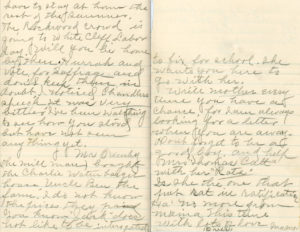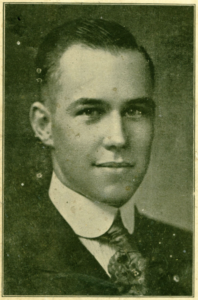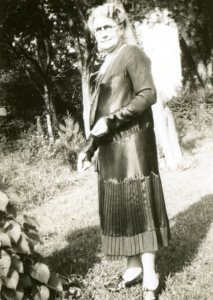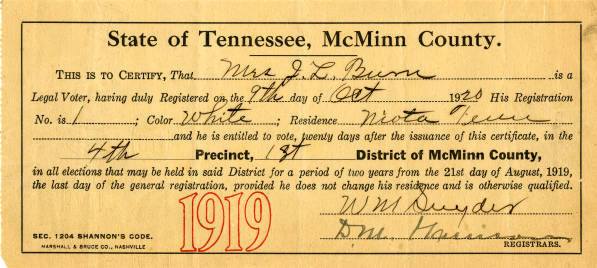Many people are aware that the 19th Amendment was first drafted by Susan B. Anthony and Elizabeth Cady Stanton in 1878. Some also realize that it took decades of political battles before it gained enough support to be formally adopted into the U.S. Consitution. But a lot of people who don’t know Febb Burn’s quiet, yet instrumental, role in how that ultimately happened.
Allow me to set the scene for you. The year was 1920. The 19th Amendment made it to the house floor in 1919 where it was finally passed. After being approved by the Senate, it was sent to the states for ratification. The amendment required ratification in at least 36 states before it could be formally adopted. Thirty-five of the required 36 states had ratified it by April of the following year but, after that, it stalled for months. By mid-year, North Carolina and Tennessee both began to consider ratification. North Carolina ultimately decided not to be the 36th state to ratify it and they sent a telegram to Tennessee, urging their legislature to follow suit.
As you can imagine, after all of this time (and with the finish line finally within view), there was a LOT of interest in this vote. So activists from both sides converged in Tennessee and the state became the epicenter for their intense lobbying efforts. At that time, wearing a yellow rose signaled your support of the Suffragist movement. With the Suffragists sporting yellow roses, the Anti-Suffragists wore red roses to show their opposition to the Suffrage movement in what became known as the War of the Roses. Everyone could tell where you stood on Suffrage based on the rose you wore.

Much to the Anti-Suffragists’ dismay, the 19th Amendment passed the Tennessee State Senate swiftly. But they weren’t too concerned because they were confident that they had the votes in the State House of Representatives to stall the amendment. For a while, it seemed that they were correct. There had initially been 62 pledges of support for Suffrage in the House but those pledges were quickly evaporating after intensely effective lobbying.
A young man named Harry Burn was one of those House members who had initially intended to vote for the 19th Amendment but had been swayed to vote against it. He started wearing a red rose to signal his opposition. With all of the defections, the House became deadlocked in a 48-48 tie. Things were looking dim.
To everyone’s surprise, when a vote was brought to the floor, the deadlock was broken and Tennessee became the 36th state to ratify the 19th Amendment by a VERY narrow margin of 49 to 47. The tie was broken by Harry Burn who had a last-minute change of heart and effectively secured the right for women to vote in America.
Everyone was shocked when Burn changed his vote. The Anti-Suffragists were sure he was solidly on their side. He had voted with them previously and he was still wearing a red rose when he cast his Aye vote. They laughed at first because they assumed he had been confused by the question or that he had accidentally misspoken. When it was clear that he was standing by his vote, there was a lot of anger. He was called a “traitor to manhood’s honor” and he was accused of taking bribes. No one could understand why this young man who was sporting a red rose, could have voted the way he voted.
What changed his mind? It was a letter that he held, tucked away in his breast pocket. The letter was from his mom, Febb Burn.

From Febb Burn’s letter to her son Harry T. Burn
In the letter, she said, “Hurrah, and vote for suffrage and don’t keep them in doubt.” She added, “I’ve been watching to see how you stood.” This gentle reminder that is mom was watching to see if he would do the right thing was what ultimately ended up extending voting rights to 17 million women. History was changed by that one little note, written by Febb Burn. She was a woman who had no direct power to effect any change in the system. But she did have a voice and she used it.
My point? One vote does matter. One voice matters too. It was one man’s vote in Tennessee that forever changed our country when his vote secured voting rights for women. And it was one mother’s voice, in the form of a note that he held in his pocket, that changed his Nay to an Aye.
Women gained the right to vote in this country because that young man carried his mom’s letter in his pocket. Consider this post to be the letter in your pocket that encourages you to do the right thing. Be a voice for the voiceless. Help the oppressed. Stand up for what’s right. Your vote does matter and so does your voice – not just to you and the ones you love. It matters to so many who are underrepresented and whose voices are not being heard. Be the person who makes the difference. Vote.

Harry Burn

Febb Burn
Image Credits:
Harry T. Burn Papers – C.M. McClung Historical Collection, Knox County Public Library
http://cmdc.knoxlib.org/cdm/compoundobject/collection/p265301coll8/id/699




Recent Comments